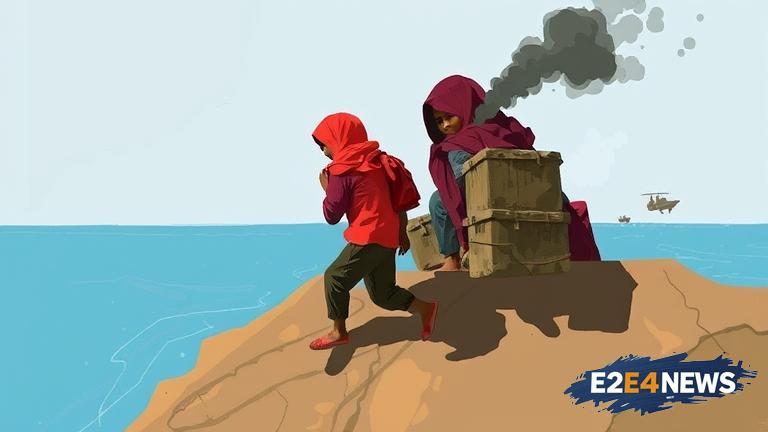The migrant crisis in Libya has been a longstanding issue, with thousands of refugees and migrants being detained in inhumane conditions. Recently, a group of freed migrants shared their harrowing tales of abuse, torture, and exploitation at the hands of human traffickers and Libyan authorities. The migrants, who were detained in various centers across Libya, reported being subjected to forced labor, physical and emotional abuse, and even sold into slavery. Many of the migrants were fleeing war, persecution, or poverty in their home countries, only to find themselves trapped in a living nightmare in Libya. The detention centers, which are often overcrowded and unsanitary, have been criticized for their deplorable conditions, with migrants being forced to live in squalor and without access to basic necessities like food, water, and medical care. The migrants also reported being beaten, tortured, and intimidated by their captors, who demanded ransom payments from their families in exchange for their release. Some migrants even reported being sold to other traffickers, who forced them to work in exploitative conditions. The situation in Libya has been exacerbated by the country’s ongoing conflict, which has created a power vacuum and allowed human traffickers to operate with impunity. The international community has been criticized for its response to the crisis, with many arguing that more needs to be done to protect the rights and dignity of migrants. The European Union, in particular, has been accused of turning a blind eye to the crisis, with some member states even collaborating with Libyan authorities to detain and deport migrants. Despite the challenges, many migrants continue to risk their lives to reach Europe, driven by the hope of a better life and the promise of safety and protection. However, for many, the journey ends in tragedy, with thousands of migrants dying at sea or in the desert. The stories of the freed migrants serve as a stark reminder of the need for urgent action to address the migrant crisis in Libya. The international community must work together to provide protection and support to migrants, while also addressing the root causes of migration, such as poverty, conflict, and persecution. This includes increasing funding for humanitarian efforts, providing safe and legal migration channels, and holding perpetrators of human trafficking and abuse accountable. Furthermore, the Libyan government must take responsibility for the welfare of migrants in its territory and work to prevent human trafficking and abuse. The EU and other international organizations must also take a more proactive role in addressing the crisis, including providing support for migrant rescue operations and advocating for the rights of migrants. Ultimately, the migrant crisis in Libya is a complex and multifaceted issue that requires a comprehensive and coordinated response. By working together, we can help to prevent the exploitation and abuse of migrants and ensure that they are treated with dignity and respect. The situation in Libya is a stark reminder of the need for a more compassionate and humane approach to migration, one that prioritizes the safety and well-being of migrants above all else. As the international community continues to grapple with the challenges of migration, it is essential that we remember the human cost of the crisis and work towards a solution that protects the rights and dignity of all migrants. The stories of the freed migrants are a testament to the resilience and courage of those who have been affected by the crisis, and serve as a reminder of the need for urgent action to address the migrant crisis in Libya. In conclusion, the migrant crisis in Libya is a complex and ongoing issue that requires a comprehensive and coordinated response from the international community. By working together, we can help to prevent the exploitation and abuse of migrants and ensure that they are treated with dignity and respect.





